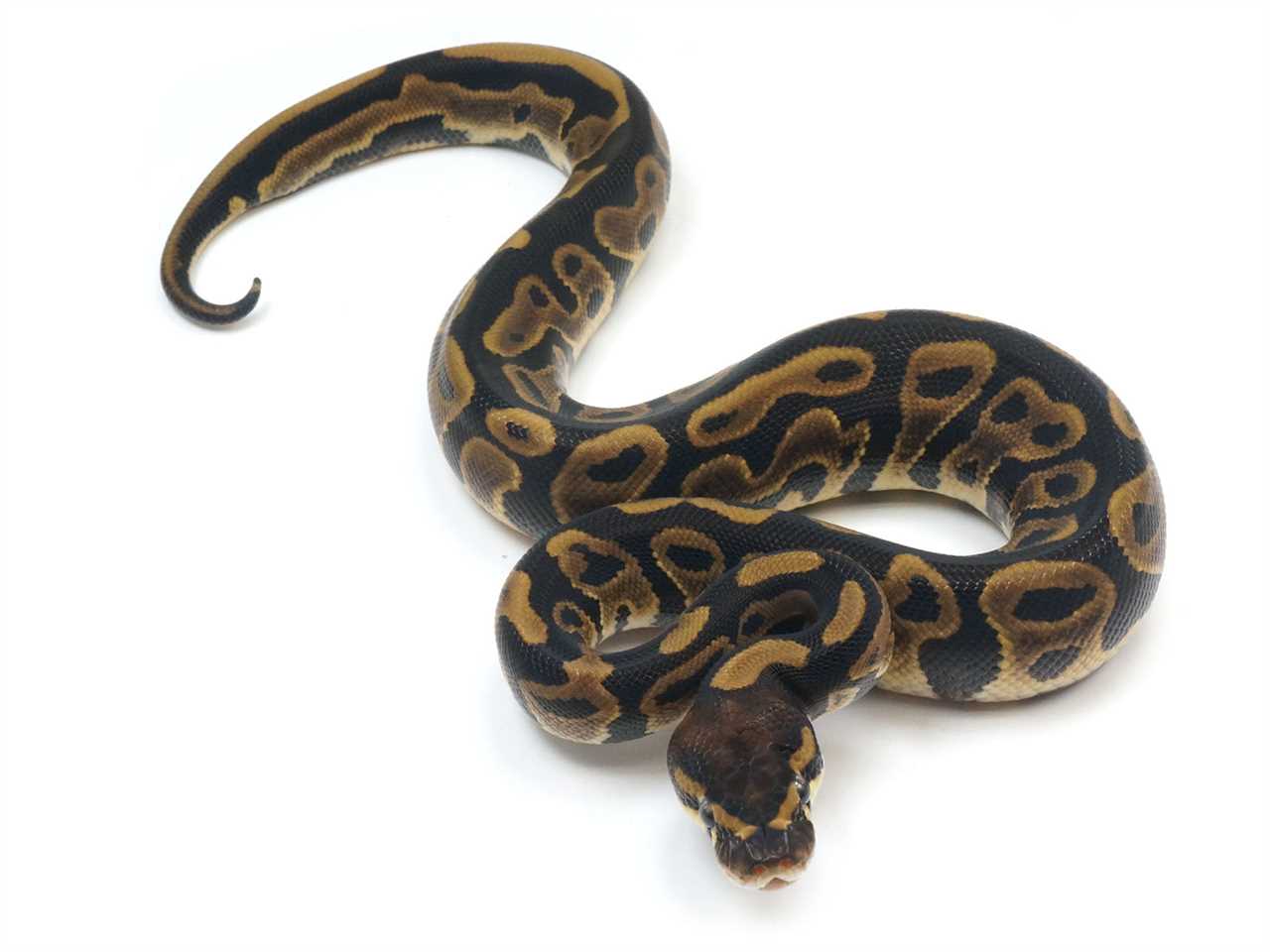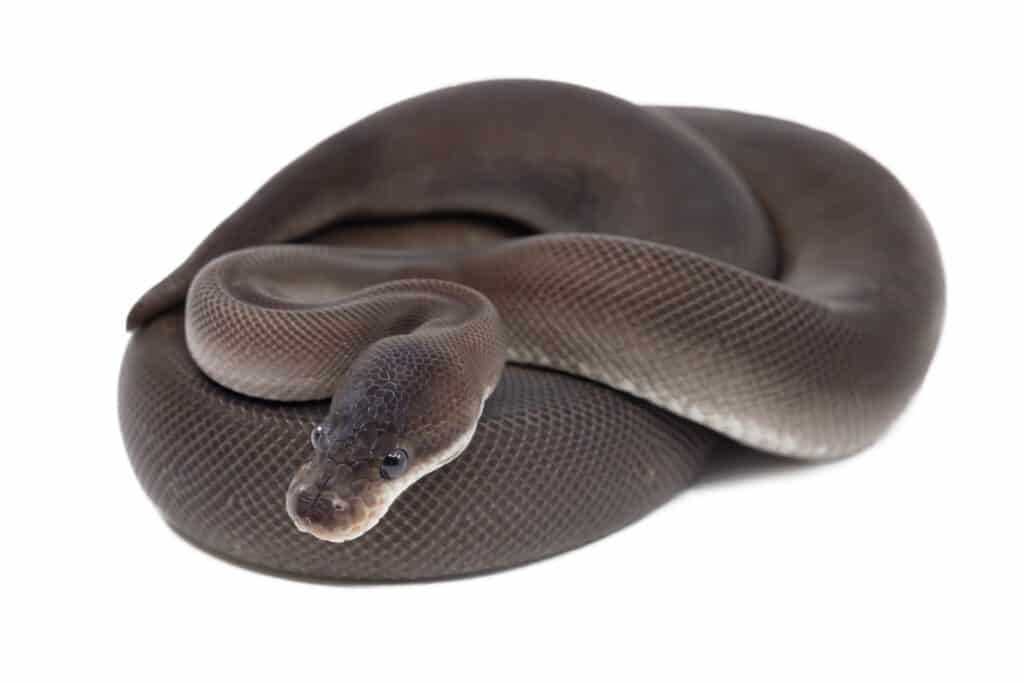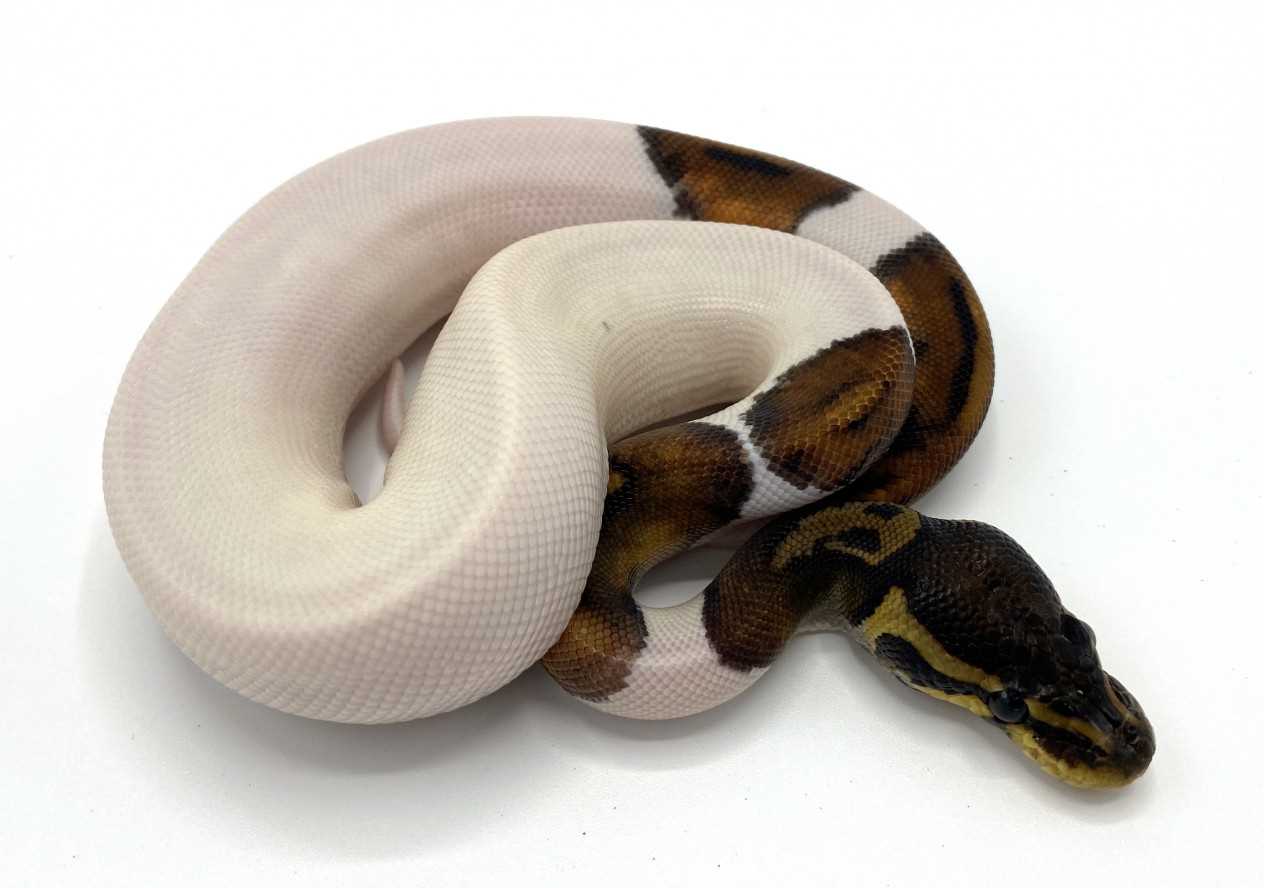
The all black ball python is a popular pet choice among snake enthusiasts due to its unique appearance. Many snake owners are drawn to the sleek, glossy black scales of this python, which make it stand out in a terrarium. Additionally, the all black ball python is known for its docile temperament, making it an ideal pet for beginners. With proper care, including a suitable enclosure, regular feeding, and handling, this python can thrive as a pet for many years.
All You Need to Know About the All Black Ball Python
Appearance and Characteristics
These pythons typically have a smooth and shiny scale pattern, giving them a sleek appearance. They have a stout body with a stocky build, making them excellent climbers. On average, they reach a length of 3 to 5 feet, with males being slightly smaller than females.
Care and Housing Requirements

The temperature inside the terrarium should be maintained between 80-85°F during the day and slightly cooler at night. A temperature gradient should also be created, allowing the snake to bask under a heat lamp or hide in cooler areas. The humidity level should be kept around 50-60% to ensure the snake’s respiratory health.
Feeding and Diet
Feeding should be done in a separate enclosure to prevent substrate ingestion and reduce stress during feeding. It’s recommended to offer pre-killed or frozen-thawed prey, as live prey can pose a risk to the snake and may result in injury.
Handling and Temperament
When handling an all black ball python, make sure to support its body properly and avoid gripping it too tightly. Regular handling is important to keep the snake accustomed to human interaction and to build trust between the owner and the snake.
Health Issues and Common Diseases
Like all reptiles, all black ball pythons are prone to certain health issues and diseases. Some common problems include respiratory infections, scale rot, and parasites. It’s crucial to maintain proper husbandry and hygiene practices to prevent these issues from occurring.
Reproduction and Breeding
All black ball pythons are sexually mature at around 3 to 4 years of age. Breeding season typically occurs during the cooler months, with females laying clutches of eggs after successful mating. The eggs are then incubated for approximately 60 days until they hatch.
Appearance and Characteristics of the all black ball python
The all black ball python is a fascinating snake with a striking appearance. Known scientifically as Python regius, it is a popular pet snake among reptile enthusiasts.
The all black ball python has a sleek and slender body, with a length that can range from 3 to 5 feet. It has a triangular-shaped head and smooth scales, which give it a glossy appearance. Its eyes are also black, which adds to its mysterious and captivating allure.
This snake is known for its docile temperament, making it a great pet for both beginner and experienced snake keepers. It is generally calm and easy to handle, although individual temperament may vary. The all black ball python is not known to be aggressive and rarely bites unless provoked or threatened.
Feeding and Diet
Like all ball pythons, the all black ball python is a carnivore. Its diet mainly consists of small mammals such as rats and mice. Juvenile snakes usually feed on pinky mice, while adults can consume larger prey items such as adult mice or small rats. Feeding should be done once every 1-2 weeks, depending on the snake’s age and size.
Care and Housing
The all black ball python requires a suitable enclosure to thrive in captivity. A terrarium or glass tank with secure locking lids is recommended to prevent escape. The size of the enclosure should be appropriate for the snake’s size, with enough space for it to move around comfortably.
The all black ball python is a fascinating snake to own, with its unique coloration and docile temperament. With proper care and housing, this snake can thrive and make a great pet for reptile enthusiasts.
Care and Housing Requirements for the all black ball python
Terrarium
The all black ball python should be kept in a spacious terrarium that replicates its natural habitat. The terrarium should be secure to prevent escapes and have adequate ventilation. It is recommended to provide a hiding spot for the python, such as a small cave or branch, to make it feel safe and secure. The terrarium should also have a secure lid to prevent the python from escaping.
Substrate
Temperature and Humidity
Ball pythons are ectothermic reptiles, meaning they rely on external heat sources to regulate their body temperature. It is crucial to provide a temperature gradient in the terrarium, with a warm side (around 88-92°F) and a cooler side (around 75-80°F). This allows the snake to thermoregulate and move between different temperature zones as needed. The humidity level should be maintained between 50-60% to ensure proper shedding and respiratory health. This can be achieved by misting the terrarium with water or using a humidifier.
Lighting
Unlike some reptiles, ball pythons do not require UVB lighting. They are primarily nocturnal and derive their heat from the substrate and ambient temperature. However, providing a regular light cycle of 12 hours of light and 12 hours of darkness can help regulate their biological rhythm and overall well-being.
Feeding
Handling and Enrichment
Healthcare
Feeding and Diet of the all black ball python
The all black ball python, a popular pet snake among reptile enthusiasts, has specific feeding and diet requirements that owners should be aware of. Proper nutrition is essential for the overall health and well-being of this unique reptile.
When feeding a ball python, it is recommended to use tongs or forceps to offer the prey item. This helps mimic the natural hunting behavior of the snake and reduces the risk of the snake accidentally biting the owner’s hand. The prey should be heated to the snake’s body temperature before feeding to increase its appeal.
As with any pet, proper hydration is crucial for the health of an all black ball python. Providing a shallow water dish in the terrarium is important for the snake to have access to fresh water at all times. The water should be changed regularly to ensure cleanliness.
Handling and Temperament of the all black ball python

The all black ball python is a fascinating pet snake that is popular among herpetology enthusiasts. With its striking black coloration, this reptile is highly sought after by snake owners and breeders alike.
Temperament

Handling
Proper handling is crucial for the well-being of your all black ball python. Here are some important tips to keep in mind:
- Make sure to wash your hands before and after handling your snake to prevent the spread of bacteria.
- Approach your snake calmly and confidently to avoid startling it.
- Support the snake’s body with both hands when picking it up to prevent any unnecessary stress or harm.
- Avoid handling your snake immediately after it has eaten, as this can cause regurgitation.
- Start with short handling sessions and gradually increase the duration as your snake becomes more comfortable.
Creating a calm and controlled environment in the snake’s terrarium is also essential for its well-being. Provide hiding spots, appropriate temperature gradients, and a clean and spacious habitat to ensure your all black ball python feels safe and secure.
By following these guidelines, you can ensure that both you and your all black ball python have a positive and enjoyable handling experience.
Health Issues and Common Diseases of the all black ball python
1. Respiratory Infections
2. Scale Rot
3. Parasites
Parasites, such as mites and ticks, can infest all black ball pythons. These external parasites feed on the snake’s blood and can cause discomfort, irritation, and even transmit diseases. Regularly inspecting your snake for any signs of parasites and providing appropriate treatment if necessary is essential for their overall health.
4. Injuries
Ball pythons, including the all black variety, can suffer from various injuries, such as burns, cuts, or abrasions. These injuries can occur due to rough handling, improper enclosure setup, or sharp objects in the terrarium. It is crucial to handle your snake with care and provide a safe and suitable environment to prevent injuries.
5. Digestive Problems
Some all black ball pythons may experience digestive problems, such as regurgitation or constipation. These issues can be caused by inappropriate feeding practices, such as feeding prey that is too large or offering food too frequently. Providing an appropriate diet and following a proper feeding schedule can help prevent digestive problems.
Overall, monitoring the health of your all black ball python requires regular observation, attention to their environment, and prompt action if any health issues or symptoms arise. Consulting with a reptile veterinarian who specializes in herpetology can provide valuable guidance and assistance in maintaining the well-being of your pet snake.
Reproduction and Breeding of the all black ball python
When the time is right for breeding, the male and female all black ball pythons should be introduced to each other in a controlled environment. It is crucial to closely monitor their interactions to ensure compatibility and minimize the risk of aggression.
After the gestation period, the female all black ball python will lay a clutch of eggs. It is essential to provide her with a secure and comfortable nest box to ensure the eggs are properly incubated. The eggs should be carefully monitored for signs of fertility and development.
Depending on the conditions and temperature, the eggs will hatch after approximately 55 to 75 days. The hatchlings should be moved to a separate enclosure with appropriate heat and humidity levels to ensure their health and wellbeing.
Overall, the reproduction and breeding of the all black ball python require careful planning and attention to detail. It is essential to provide the breeding pair with the proper environment, nutrition, and care to ensure a successful breeding outcome. With the right knowledge and proper care, breeding the all black ball python can be a rewarding and exciting experience for any reptile enthusiast.
